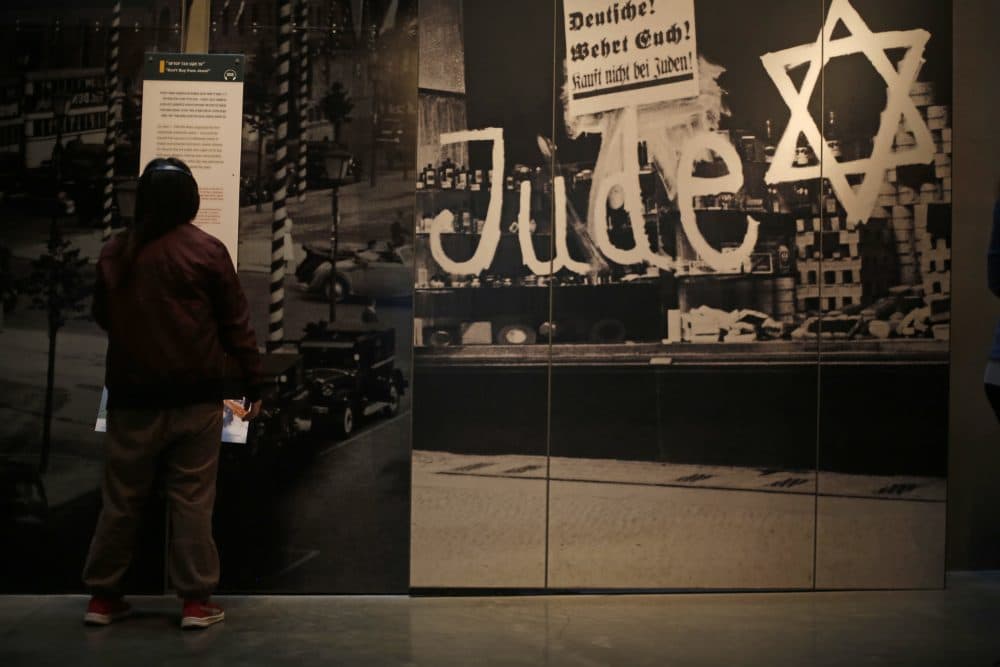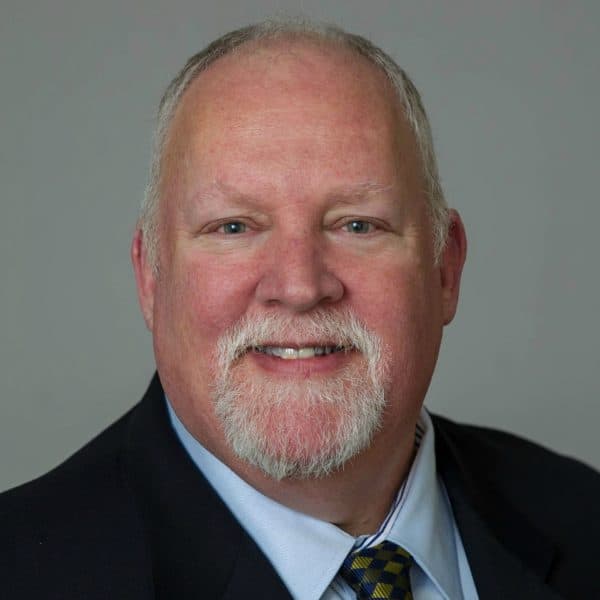Advertisement
Americans Are Forgetting About The Holocaust. Here's Why That Matters

According to a survey released this month, many adults — and even more millennials — lack basic knowledge about the Holocaust.
Here’s how the New York Times encapsulated the findings:
Thirty-one percent of Americans, and 41 percent of millennials, believe that two million or fewer Jews were killed in the Holocaust; the actual number is around six million. Forty-one percent of Americans, and 66 percent of millennials, cannot say what Auschwitz was. And 52 percent of Americans wrongly think Hitler came to power through force.
These are challenging, difficult statistics.
But as someone who has been involved in Holocaust education for 30 years, they are not surprising.
The events of the Holocaust are inaccessible to students and to so many of us in at least three ways:
Chronologically, after more than 70 years the Holocaust is distant; remember that this year's college freshmen were born in 2000.
Geographically, too, the Holocaust is remote; few today can find Łódź or Warsaw on a map, yet the shape of Europe deeply affected the progression of the Shoah.
Holocaust study matters in and of itself, but learning about the Shoah will be so much more meaningful if we know why it matters to us.
And conceptually the Holocaust is foreign: Scholars often note that at the time the mass murders seemed inconceivable. That remains the conclusion so for many, despite the testimony of history.
But there are things we can do to make Holocaust study more effective.
First, our identity — who we are as we begin Holocaust education — matters. Effective study must begin with an assessment of our situation in a community, clarification of our own connections to the events, or our concern for the ways a democracy can be subverted by authoritarian or fascist leadership.
Holocaust study matters in and of itself, but learning about the Shoah will be so much more meaningful if we know why it matters to us. And despite our diverse backgrounds, nearly all of us can find our particular reason for concern that the inherent brutality of anti-semitism might rear its head again, or arise in other forms: racism, white supremacy, extreme bigotry aimed at homosexuals or the disabled.
Advertisement
Remember that these groups and so many others were targeted by the Third Reich. For the Nazis, Jews represented the bottom of a certain hierarchy of humanity; but these other groups were only slightly higher, and often deemed well below the threshold that might have prevented Nazi baseless hatred. Our students will do well to understand why this study matters to them.
Second, the rigors of the history need to be central. The most effective Holocaust education trusts students to grapple with truly challenging sources and primary documents, guided by skilled and knowledgeable teachers and through in depth conversation with fellow students.
Our curricula must push beyond facts and figures to ask the pivotal question: Why?
It’s one thing to know that the Nuremberg laws were passed around 1935. More important to know they systematically isolated Jews from the surrounding society. But the real focus needs to be on why this isolation was deemed so important. Why was dehumanization accomplished by stripping away civil and social rights? Why did the laws require all Jews to take on an identifiably “Jewish name"? Why, always why.

In providing rigorous history, we should never neglect the vital role that survivors — the living embodiment of history — can make. While our precious survivors are still with us, we should bring them to meet students. It is a life changing experience. In fact, it is often those students who may seem uninterested and unaffected for whom hearing a survivor’s story is most profound.
Future Holocaust education will need to develop a robust “second generation” strategy, where the children of survivors can speak about their parents’ experiences. And where second generation representatives aren’t available, the skilled use of recorded survivor testimony can also be deeply meaningful. Educators will need professional development to learn how best to use all these forms of testimony. But they are vital to the successful study of the Holocaust.
Third, we need to remember that Holocaust education must be affective as well as intellectual. Approaching the abyss and peering over the edge into the depths of evil does have an effect on students. Designing a course of study and evaluations must help students process what they are absorbing. Educators who are well prepared can leverage this processing to help drive long-lasting learning.
The essence of the humanities is that particular events ought to mean something beyond themselves. As Holocaust education is designed to be more effective, we should help our students understand that it was human choices and human behavior that made history. Our courses must ask the question: Now what? Knowing what they have learned, how will students' choices shape the history they will bequeath to the next generation? How indeed will they choose to participate in their communities? Knowledge of the Holocaust needs to be in service of producing a less fragile democracy, in which bigotry and hatred are less and less likely.
The greatest tragedy in the statistics put out recently — and the greatest tragedy possible for future Holocaust education — isn’t that students will remain uninformed. It is that they will be uncaring and unchanged. Let’s dedicate ourselves to never let that happen.

